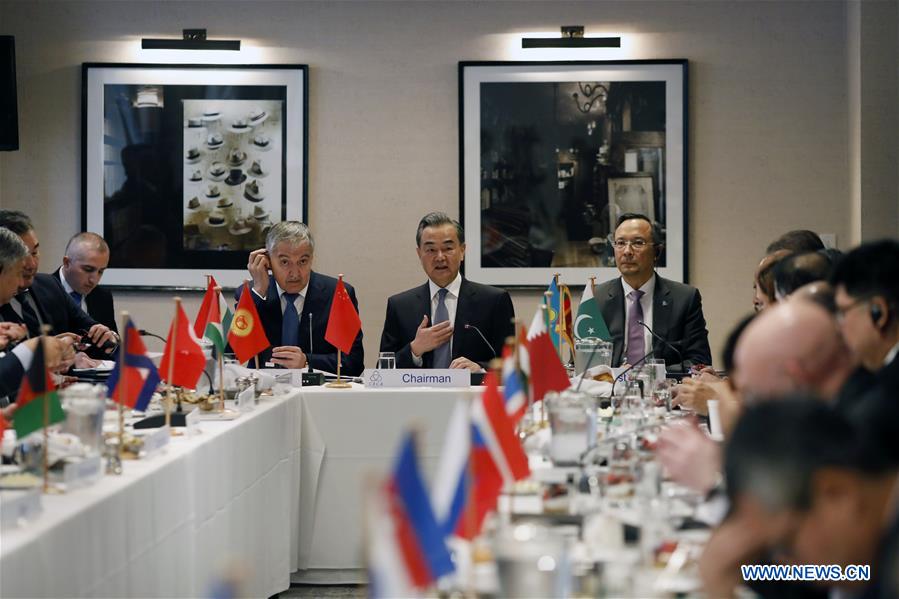
Chinese State Councilor and Foreign Minister Wang Yi (C) attends a meeting with foreign ministers or representatives of members of the Conference on Interaction and Confidence-Building Measures in Asia (CICA) in New York, on Sept. 24, 2018. (Xinhua/Li Muzi)
NEW YORK, Sept. 24 (Xinhua) -- Chinese Foreign Minister Wang Yi on Monday underlined the role of the Conference on Interaction and Confidence-Building Measures in Asia (CICA) in regional security and development issues.
Attending a meeting in New York with foreign ministers or representatives of other CICA members, Wang said that since China assumed the CICA presidency in May 2014, the mechanism has been a security cooperation forum that has the widest coverage, largest membership and most representation in Asia, and it has played an important and constructive role in promoting regional stability and prosperity.
He proposed that the forum be enhanced for sustained peace and security, win-win development, innovative transformation, and inclusive partnership in the future.
All the CICA members shall confront resolutely against unilateralism, protectionism and hegemony, in a bid to promote fairer multilateralism and build a new type of international relations, said the Chinese top diplomat.
China calls on all CICA members to deepen cooperation in trust-building, ensure effective operation, and expand collaboration with outside countries and international organizations, he said.
China will hand over its presidency to Tajikistan, Wang announced.
For their parts, foreign ministers of countries including Tajikistan, Kazakhstan, Turkey and Pakistan exchanged ideas on CICA cooperation, and spoke highly of China's contribution to the forum during its presidency.
All parties agreed to grasp the new opportunities brought about by the Belt and Road Initiative, actively promote fair and just multilateralism, build a new type of international relations, and forge a community of shared interests, responsibility and future.
The CICA was established in 1992 as a forum for dialogue and consultation on security issues in Asia. Among its 26 member countries are China, Pakistan, Kazakhstan, Mongolia, Russia and Thailand. It also includes other countries and international organizations as observers.



